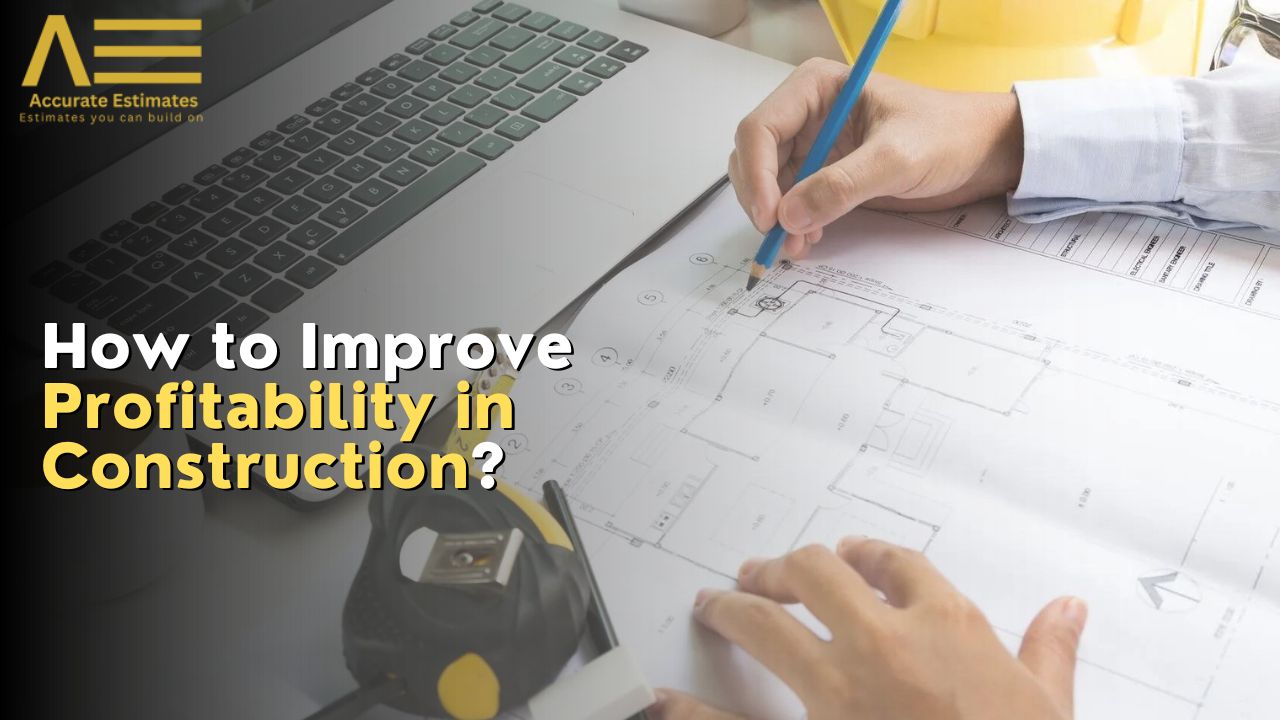How to Improve Profitability in Construction?

Table of Contents
In today’s competitive construction industry, improving profitability is a top priority for contractors and construction companies. This article will examine doable tactics and strategies to increase profitability in construction. Whether a small contractor or a large construction firm, these tips can help you maximize your earnings while delivering high-quality projects.
Understanding the Challenges
The construction industry is fraught with challenges that can impact profitability. Staying profitable requires a proactive approach, from fluctuating material prices to labor shortages and unexpected delays. Put your construction company in a better position for success by confronting these difficulties head-on.
Effective Cost Management
One of the cornerstones of profitability in construction is effective cost management. This entails careful planning, keeping an eye on spending, and looking for ways to save costs without sacrificing the standard of your job. By optimizing your cost structure, you can protect your profit margins.
Accurate Estimating
Accurate estimating is crucial in construction. Construction Estimating Consultants can help refine your estimating process, ensuring your project bids are competitive and profitable. Precise estimates help you avoid underpricing and overpricing, leading to healthier profit margins.
Leveraging Technology
The construction industry has embraced technology in recent years. Technology, including BIM and project management software, may streamline business processes, lower mistake rates, and increase efficiency. Using these tools can increase productivity.
Optimizing Project Management
For a business to be profitable, project management efficiency is crucial. Proper planning, scheduling, and resource allocation can prevent costly delays and rework. If managed effectively, your projects will be finished on schedule and within your projected budget.
Supplier and Subcontractor Relationships
Building solid relationships with suppliers and subcontractors can lead to cost-effective solutions. Negotiating favorable terms and fostering collaborative partnerships help secure materials and labor at competitive prices.
Quality Assurance and Control
In the construction industry, keeping a reputation for excellence is crucial. By implementing quality assurance and control procedures, you may consistently offer superior results while avoiding expensive rework and client complaints.
Risk Management
Construction projects often entail various risks, such as weather-related delays, design changes, and unforeseen site conditions. These risks can be reduced, and profitability can be preserved with the aid of.
Sustainable Construction Practices
Adopting sustainability has positive effects on the environment and your business’s profitability. Energy-efficient construction methods and materials can reduce long-term operational costs and attract eco-conscious clients.
Client Communication
Transparent and effective communication with clients is crucial. Update clients on the project status, changes, and potential delays. Open communication and trust-building can result in customer loyalty and referrals.
Employee Training and Development
Higher productivity and higher-caliber artistic output might result from investing in the training and development of your staff. Employees who have received proper training are more likely to accomplish jobs quickly and accurately.
Market Research and Trends
You may make strategic selections by keeping up with market demands and industry developments. You can gain a competitive advantage and increase profitability by adjusting to new trends.
Financial Analysis and Reporting
Your company’s financial health can be better understood with regular financial analysis and reporting. Utilize these insights to inform your judgments and, as necessary, change your approach.
Marketing and Branding
Practical marketing and branding efforts can attract more clients and projects to your construction business. Profitability can rise with a strong internet presence and a good reputation.
Conclusion
Improving profitability in construction is an ongoing process that involves various strategies and a commitment to excellence. By addressing challenges, managing costs, and embracing technology and sustainability, you can position your construction business for long-term success.
Frequently Asked Questions (FAQs)
What is the biggest challenge in improving profitability in construction?
The construction industry faces fluctuating material prices, labor shortages, and unexpected delays.
How can accurate estimating contribute to profitability?
Accurate estimating ensures that project bids are competitive and you avoid underpricing or overpricing.
What role does technology play in construction profitability?
Technology streamlines operations, reduces errors, and improves efficiency, contributing to profitability.
How can construction companies mitigate risks to protect profitability?
Effective risk management strategies can help reduce project-related risks, protecting your bottom line.
Why is sustainable construction essential for profitability?
Sustainable construction practices can mitigate long-term operational costs and attract eco-conscious clients.
How can transparent client communication improve profitability?
Open lines of communication foster trust, increasing customer loyalty and referrals, eventually growing profitability.
Why is employee training and development necessary in construction?
Well-trained employees are more productive and produce higher-quality work, enhancing profitability.
What role do marketing and branding play in construction profitability?
Practical marketing and branding efforts can attract more clients and projects, increasing profitability.
By putting these tactics into practice and maintaining your dedication to excellence, you can improve profitability in construction and thrive in a competitive market.


